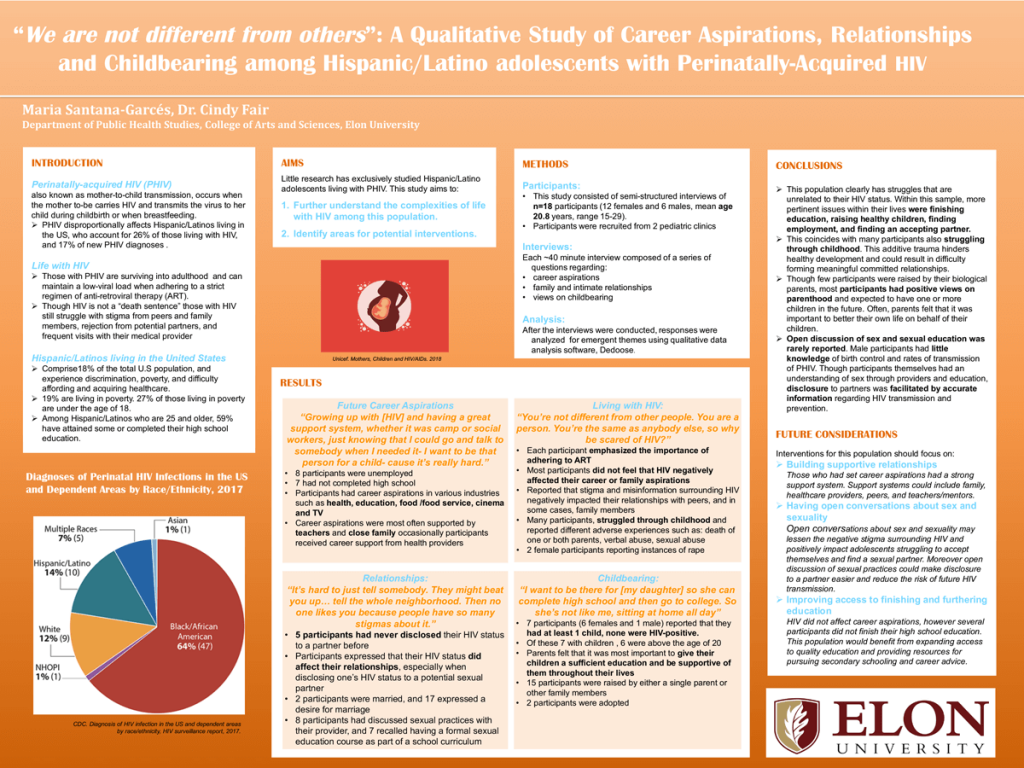- Home
- Academics
- Undergraduate Research
- Celebrating Undergraduate Research
- Maria Santana-Garces
Maria Santana-Garces
Class of 2020
- Public Health Studies

“We are not different from others”: A qualitative study of career aspirations, relationships, and childbearing among Hispanic/Latino adolescents with perinatally-acquired HIV
Project Mentor:
- Cindy Fair, professor of public health studies and human service studies, Watts/Thompson Professor and chair of the Department of Public Health Studies
Project Abstract
Little research has investigated Hispanic/Latino youth with perinatally-acquired HIV (PHIV), that comprise 26% of those living with PHIV and are now surviving into young adulthood. This population faces a myriad of challenges such as stigma from peers and family members, rejection from potential sexual partners, and difficulty navigating the United States healthcare system. Hispanic/Latinos are also disproportionally affected by high rates of poverty and low educational status. This qualitative study examined the lived experiences of 19 Hispanic/Latino adolescents living with PHIV recruited from a pediatric clinic. Mean age of participants was 19.8 years (range 15-25; 13 females and 6 males). Interviews included questions regarding adolescents’ future career aspirations, relationship and childbearing intentions, and narratives of living with PHIV. Interview transcripts were analyzed for emergent themes. Many did not view HIV as a barrier to their career aspirations. Two participants were married and nine were in committed relationships. Of the unmarried participants (n=17), 16 expressed a desire for marriage. While participants frequently tried to minimize how HIV had influenced their romantic relationships, every participant acknowledged that their illness had caused issues related to disclosure along with fears of rejection and transmission. Thus, they stressed the importance of maintaining a suppressed viral load by adhering to treatment. Participants with children (n=9) expressed a strong desire to continue educational and career goals for the benefit of their children. The majority of participants expected to have children in the future and did not consistently use contraceptives or condoms. In addition to living with HIV, participants also frequently discussed adverse childhood experiences including incarceration of a parent, death or suicide of a parent, and physical/verbal/sexual abuse during childhood. While living with a stigmatizing illness certainly influenced their daily lives, the challenges of living in poverty and experiences of loss and trauma also shaped their well-being. Hispanic/Latino adolescents with PHIV may benefit from the provision of trauma-informed and culturally competent care with the goal of supporting educational goals, risk reduction, and managing fear of rejection. Future research needs to assess current interventions with the aim of supporting this vulnerable population in their transition to adulthood.
 Download Project Presentation
Download Project Presentation